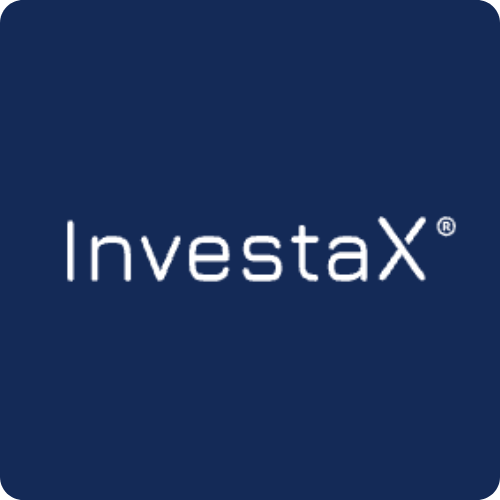
Trustury
Trustury, developed by Meeco, is a specialized platform designed to enhance the transparency and auditability of tokenized assets on the Hedera blockchain network, particularly those focused on environmental, social, and governance (ESG) criteria. It functions as an open-source interface that enables users to manage, visualize, and securely share trusted information associated with tokens and decentralized identifiers (DIDs) on the Hedera network. The platform's primary role is to support the growth and adoption of Hedera's Guardian, a modular open-source solution for creating highly auditable and compliant tokenization workflows.
It provides a public-facing dashboard or "explorer" that displays tokens from across the Hedera ecosystem, allowing stakeholders to drill down into a token’s provenance and verify its adherence to specific standards or policies, such as ESG requirements.
Trustury integrates deeply with Hedera's native services, using the Hedera Token Service (HTS) to fetch token details and its DID method for identity management. By providing clear visualization tools and a consistent mechanism for users to interact with Guardian-based assets, Trustury serves as essential infrastructure for building trusted, auditable, and sustainable digital economies on Hedera.
Project Information
Related Projects

Atomic Wallet is a non-custodial multi-currency wallet that provides users with direct control over their private keys and digital assets. It is designed to offer a comprehensive solution for managing a diverse crypto portfolio, supporting over 1,200 cryptocurrencies across more than 60 different blockchains, including major assets such as Bitcoin, Ethereum, and Solana, as well as numerous smaller tokens.
The Atomic Wallet service integrates several key functionalities directly within its interface including a built-in exchange feature to swap between various cryptocurrencies facilitated by integrated third-party services. It also offers a staking service for more than 20 different proof-of-stake assets, allowing users to earn passive income on holdings. Furthermore, the platform enables the purchase of cryptocurrencies using both cryptocurrency and fiat currencies through partnered on-ramp providers.
It is available on both desktop (Windows, macOS, Linux) and mobile (iOS, Android) platforms. Atomic Wallet also supports non-fungible token (NFT) management and provides direct access to Web3 decentralized applications (DApps). The wallet has its own native token, Atomic Wallet Token (AWC), which can be staked for rewards and other benefits within its ecosystem. It respects user privacy by not requiring know-your-customer (KYC) information for its core wallet functionalities.

Chainabuse is a community-powered scam reporting platform operated by blockchain intelligence company, TRM Labs. It was launched in 2022 to give users a means to report and track fraudulent activity across the crypto ecosystem. The platform's mission is to make the digital economy a safer place by providing a centralized and public forum for sharing information about scams, hacks, and other malicious activities.
The core service of Chainabuse is a free-to-use, multi-chain reporting tool. It allows anyone to submit reports on illicit activities, including malicious crypto addresses, websites, and social media accounts. These reports are made public in a searchable database, creating a valuable resource for the community to proactively check for potential threats before engaging in transactions. By consolidating reports and enabling users to contribute additional information, Chainabuse helps to identify and expose larger fraud networks.
Chainabuse is a founding Hedera partner. Its platform supports the reporting of scams on the Hedera network, allowing users to flag malicious activity involving HBAR or other Hedera-based assets. This provides a critical layer of security for the Hedera community, enabling users to make more informed decisions and helping to protect the ecosystem from bad actors.

InvestaX is a Singapore-based, licensed security token platform Its mission is to provide a comprehensive, end-to-end solution for the issuance, trading, and custody of security tokens, bridging the gap between traditional finance and the world of decentralized assets.
The company offers a full suite of services for the digital asset lifecycle including tokenization. The InvestaX platform also features a primary issuance service for launching new security token offerings (STOs), as well as a secondary trading marketplace for providing liquidity to these assets. A core component of their offering is their institutional-grade custody solution, which ensures the secure storage of digital assets.
While InvestaX is a multi-chain platform, it has a direct integration with the Hedera network. The company utilizes Hedera's high-throughput and low-cost infrastructure to provide its clients with a fast, secure, and efficient platform for tokenizing and managing their assets. Through this integration, InvestaX offers a scalable and enterprise-grade solution for the digital asset market, enabling accessibility and liquidity for a wide range of real-world assets.

Magic is a Wallet-as-a-Service (WaaS) platform that provides developers with tools to streamline user onboarding for decentralized applications, including those built on the Hedera network. The platform's core offering is an SDK that enables seamless authentication and the instant creation of non-custodial wallets for end-users, bypassing many of the traditional complexities of Web3.
For the Hedera ecosystem, Magic allows dApp developers to offer familiar Web2 login methods, such as email or social accounts, instead of requiring users to manage seed phrases or install separate browser-extension wallets. When a user logs into a Magic-enabled Hedera dApp, a secure, Hedera-compatible wallet is automatically generated for them in the background. This wallet is fully capable of interacting with the Hedera network, allowing the user to sign transactions, manage HBAR and HTS tokens, and engage with smart contracts.
The underlying technology uses a delegated key management system, where private keys are encrypted and stored in secure hardware modules, ensuring users retain full control and ownership of their assets without the burden of direct key management.
